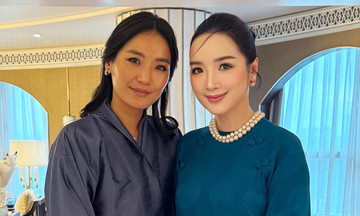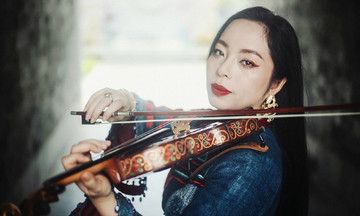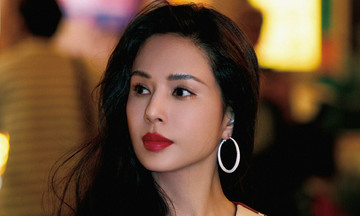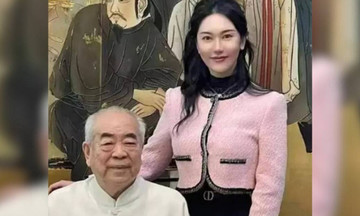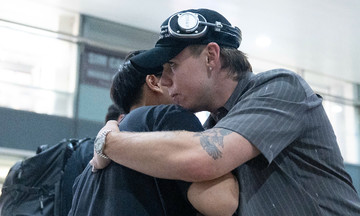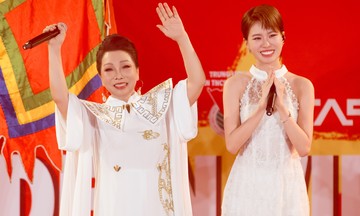Iconic works of Vietnamese revolutionary poetry were showcased at the Military Radio - Television Center on the evening of 14/8. General Phan Van Giang, Minister of National Defense, attended the event along with hundreds of veterans, soldiers, artists, students, and literature enthusiasts.
Over two hours, the program retraced the historical flow of Vietnamese poetry, from the time leader Nguyen Ai Quoc embarked on his journey to find a way to save the country, through the resistance wars against the French and the Americans, the border wars, and into peacetime. Throughout this journey, literature in general, and poetry in particular, became a mirror reflecting the realities and sentiments of the nation. Poetry was no longer a private expression but a shared voice, a spiritual weapon for soldiers. Each artist became a warrior on the ideological front, as President Ho Chi Minh advised: "Now in poetry there should be steel/ Poets must also know how to charge" (Impressions on reading Thien Gia Thi).
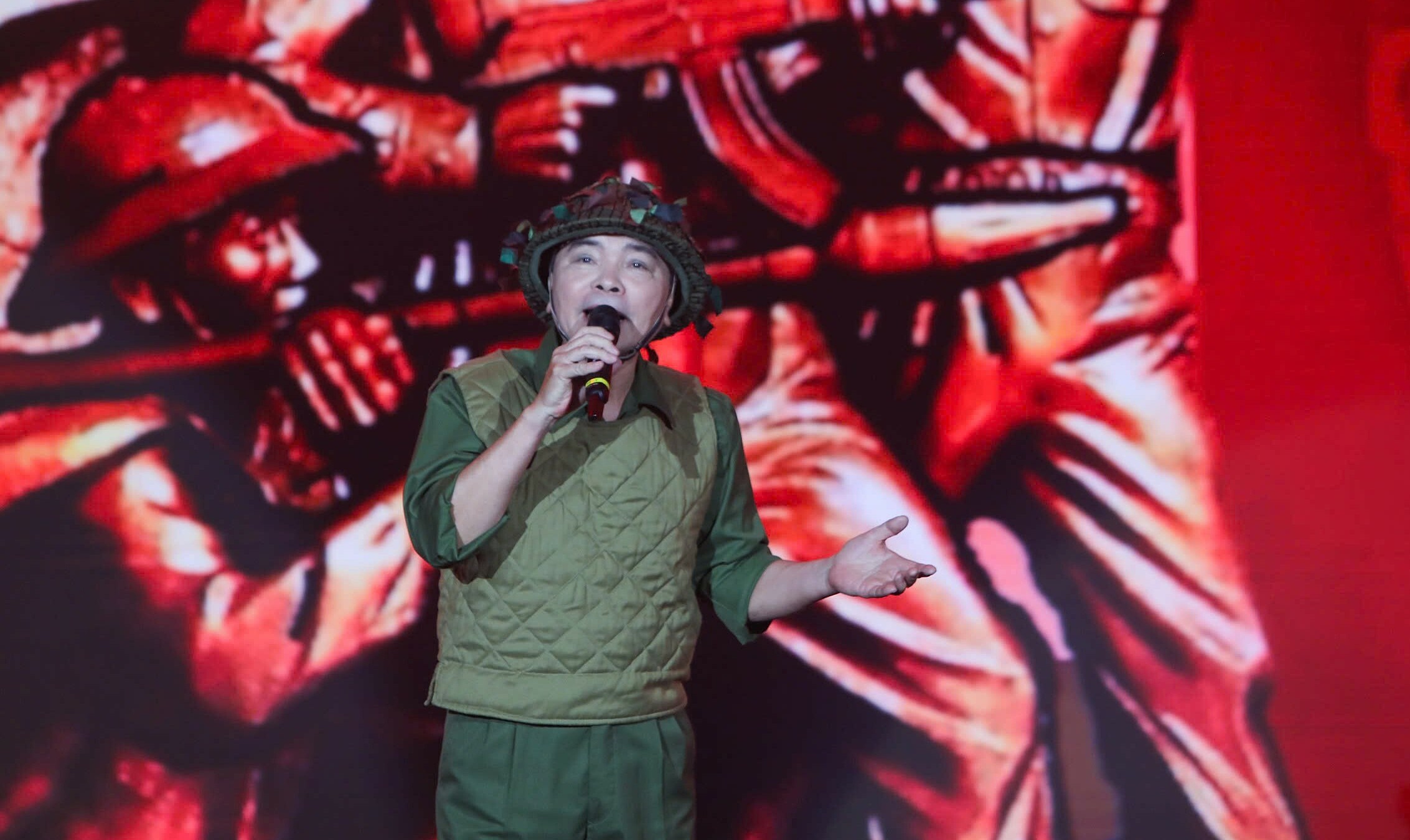 |
Artist Ngoc Tho performs an excerpt from "Hoan ho chien si Dien Bien" (To Huu). Photo provided by the organizers. |
Artist Ngoc Tho performs an excerpt from "Hoan ho chien si Dien Bien" (To Huu). Photo provided by the organizers.
The program opened with the suite "Image of the Party within the image of the nation." Excerpts from poems like "The man who sought the image of the nation" (Che Lan Vien), "The nation" (Nguyen Dinh Thi), "Lao Bao," "Last words," "Thirty years of our lives with the Party" (To Huu), and "The national flag" (Xuan Dieu) reminded the audience of a historical era:
"A bowl of rice drenched in tears
Still clinging to our mouths
The French, the landlords
One pressing our necks, the other stripping our skin…
Your chains cannot bind
A sky full of birds and a land full of flowers
Your bullets cannot shoot down
Our people's love for their country and homes!..."
("The nation" - Nguyen Dinh Thi)
Artists recited and performed poetry combined with illustrative scenes depicting the context in which the works were created, helping the audience visualize the fervent atmosphere of the resistance years.
The suite "Image of the Party within the image of the nation" - excerpts from poems by Che Lan Vien, To Huu, Nguyen Dinh Thi, and Xuan Dieu performed by People's Artists Ta Tuan Minh, People's Artist Khuat Quynh Hoa, Nguyen Thanh Huong, Tong Minh Tung, Truong Tuan Vu and the Dance Troupe of the Military Song and Dance Theater. Video: Khanh Linh
After the Dien Bien Phu victory, the Geneva Accords were signed, forcing the French to end the war, restore peace to North Vietnam, and pledge to respect Vietnam's independence and sovereignty. But this joy was short-lived, as the entire nation had to continue fighting against American imperialism in South Vietnam.
Soldiers went to war not only for the common ideals of the nation but also to protect the simple and sacred values of their private lives. These include romantic love ("Your love" - Ho Ngoc Son), a child's heartache for their mother's hardships ("Mother of the winter-spring rice paddies" - Vuong Trong), and love for the homeland and appreciation for cultural and historical values ("The nation" - Nguyen Khoa Diem). The program emphasized the message that in the arduous war, soldiers were not sentimental but knew how to transform love into a guiding light, igniting faith in a day of national reunification.
Performance of "Mau hoa do" by People's Artist Hong Hanh (poem by Nguyen Duc Mau, music by Thuan Yen). Video: Khanh Linh
The live appearance of authors from the American War era, such as poets Nguyen Khoa Diem and Vuong Trong, was a highlight of the art performance. The audience enthusiastically welcomed them to the stage with long applause. Many students listened attentively and took notes.
These poets in soldiers' uniforms served as historical witnesses, bridging the past and the present. Although the war ended long ago, Nguyen Khoa Diem said he has not forgotten the memories of those years. He expressed his thoughts in his latest poem, composed in March, "On the stone steps of Hai Van Quan." The poet traveled through Hai Van Pass, reflecting on war and peace at the location where "the country curls into the letter S."
82-year-old poet Nguyen Khoa Diem reads "On the stone steps of Hai Van Quan." Video: Khanh Linh
20-year-old Ngoc Anh said it was the first time she had met the authors in person, despite having read and studied their works extensively. "This helps me better understand the story and the people behind the writings with authentic wartime experiences," she said.
The image of the nation continues to be written by today's verses. There are soldiers still guarding and protecting the homeland day and night from remote border areas and islands. During the art performance, an excerpt from "The nation seen from the sea" (poem by Nguyen Viet Chien, music by Nguyen Tung) was movingly performed by People's Artist Vuong Ha.
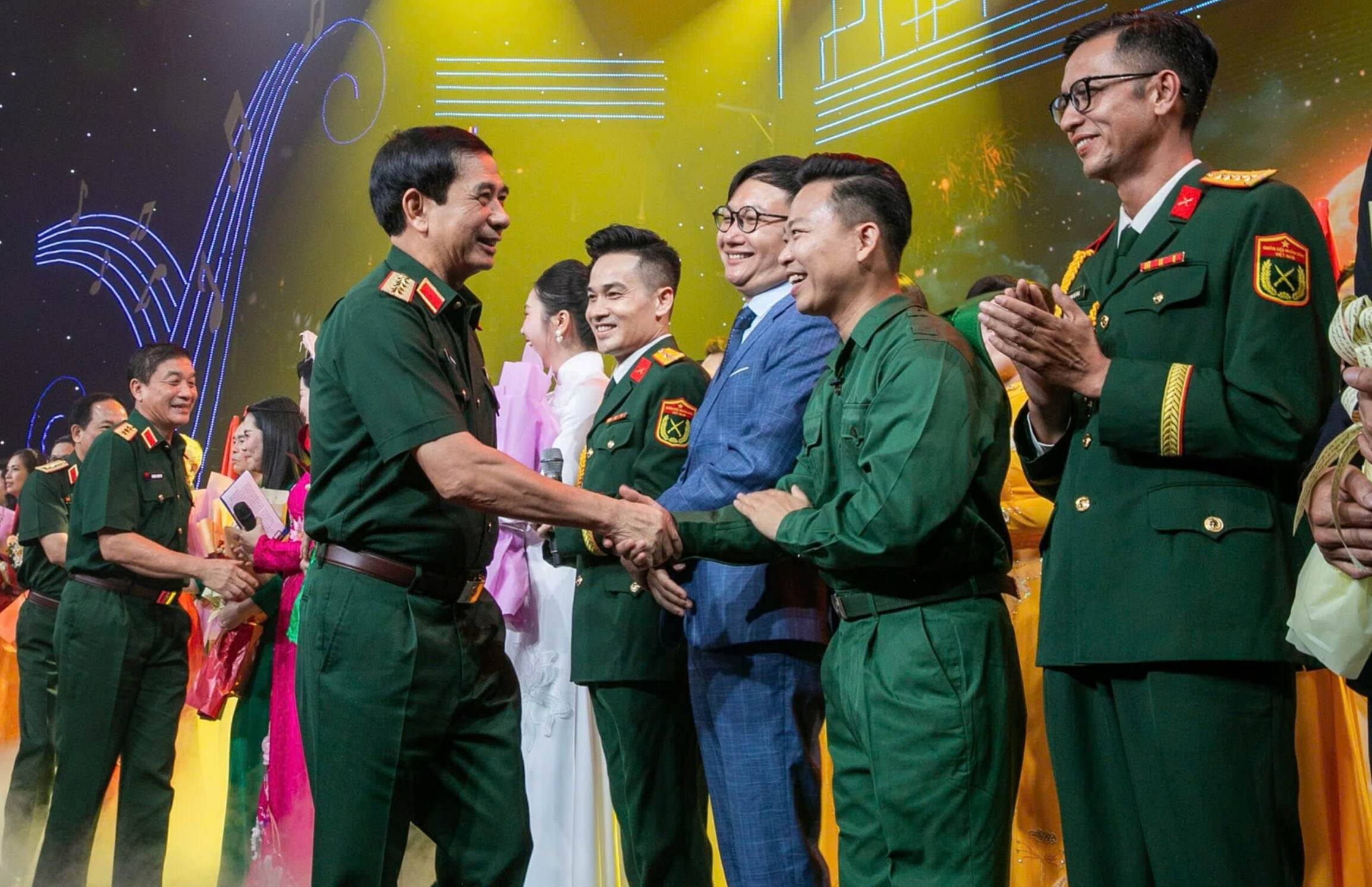 |
General Phan Van Giang presents flowers to the artists. Photo provided by the organizers. |
General Phan Van Giang presents flowers to the artists. Photo provided by the organizers.
The program concluded with a song and dance performance of "Vietnam on our path" by artists from the Military Song and Dance Theater, expressing the aspiration to build and develop the country. Poet Pham Si Sau hopes that young writers focusing on soldiers will not forget the legacy left by their predecessors and will also know how to "portray the image of soldiers in peacetime with new characteristics: mastering the country and science and technology."
The event "Verses that shape a nation" was organized by the Military Literature and Arts Magazine in collaboration with the People's Army Publishing House, the Military Song and Dance Theater, and the Military Radio - Television Center. In commemoration of the 80th anniversary of the August Revolution and National Day (2/9), the program is a tribute to the generations who fought for peace for the nation and a reminder to the younger generation about patriotism, gratitude to their roots, and promoting the values built by their forefathers.
Khanh Linh





